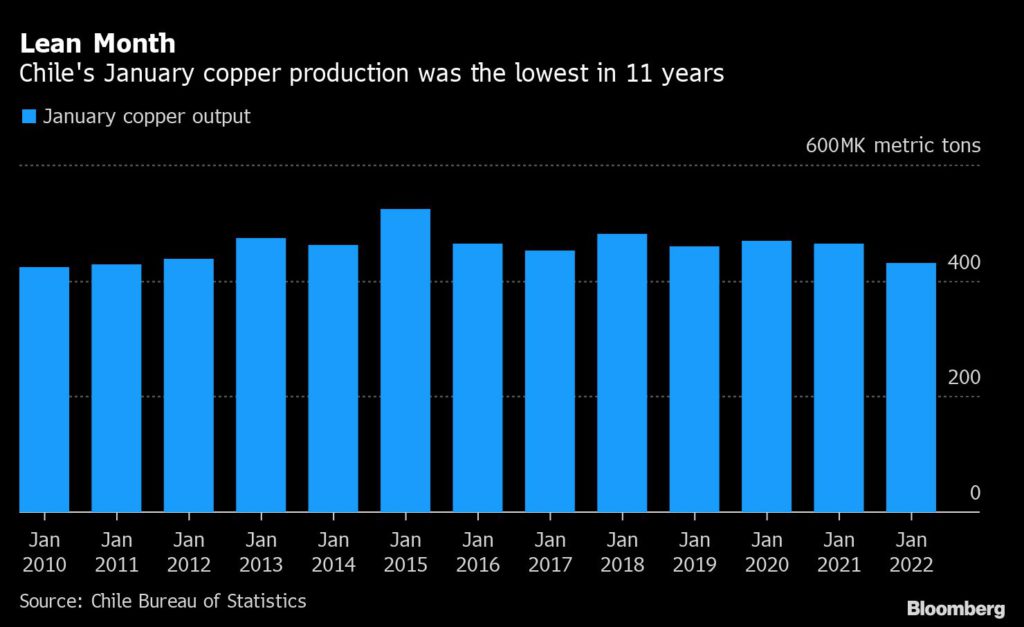
The copper price hit an all-time high on Friday as traders looked to stock up over fears of further supply-chain disruption.
[Click here for an interactive chart of copper prices]
Adding to metal supply fears are falling inventories in LME-registered warehouses. Copper stocks, at 69,825 tonnes, are the lowest since 2005.
Base metals rallied across the board with the LMEX Index, which tracks six major contracts, surging to a record high. Nickel briefly trade above $30,000 a tonne for the first time since 2008.
“The market is in a panic mode in terms of supply,” said Gianclaudio Torlizzi, a partner at consultants T-Commodity, adding prices would keep rising while conflict raged in the Ukraine.
Russia isn’t a major copper player, producing about 3.5% of the world’s copper. Still, commodities extended their massive rally this week as the war fueled fears of supply crunches.
Sanctions on Russian individuals and corporates have prompted many banks, shippers and other firms to stop working with Russian companies or goods.
“This Russia and Ukraine conflict has only fanned the flames of the already stretched base metals markets,” Reuters quoted ING analyst Wenyu Yao:
“All energy prices are through the roof and that will add more risk to production in Europe which will provide the catalyst to a rally.”
Lean month in Chile
Chile, responsible for more than a quarter of global copper production, recorded its lowest January output since 2011, government figures showed on Monday.
Chilean copper production is expected to recover to register a similar annual haul as last year, according to the president of the country’s mining society.
The world’s biggest supplier saw output slide 7.5% from January 2021, with lower ore quality and water scarcity among the reasons. In some cases, the factors holding back output are temporary, said Diego Hernandez, a former chief executive of Codelco and Antofagasta Plc, who now heads Sonami.
“This year should be the same as last year or maybe slightly less,” he said on call on Thursday.

(With files from Reuters and Bloomberg)
No comments:
Post a Comment